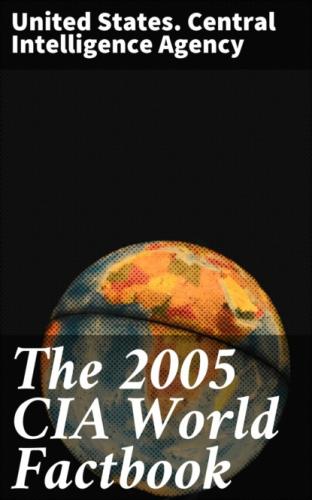Hutu (Bantu) 85%, Tutsi (Hamitic) 14%, Twa (Pygmy) 1%, Europeans
3,000, South Asians 2,000
Religions:
Christian 67% (Roman Catholic 62%, Protestant 5%), indigenous
beliefs 23%, Muslim 10%
Languages:
Kirundi (official), French (official), Swahili (along Lake
Tanganyika and in the Bujumbura area)
Literacy:
definition: age 15 and over can read and write
total population: 51.6%
male: 58.5%
female: 45.2% (2003 est.)
Government Burundi
Country name:
conventional long form: Republic of Burundi
conventional short form: Burundi
local long form: Republika y'u Burundi
local short form: Burundi
former: Urundi
Government type:
republic
Capital:
Bujumbura
Administrative divisions:
16 provinces; Bubanza, Bujumbura, Bururi, Cankuzo, Cibitoke,
Gitega, Karuzi, Kayanza, Kirundo, Makamba, Muramvya, Muyinga, Mwaro,
Ngozi, Rutana, Ruyigi
Independence:
1 July 1962 (from UN trusteeship under Belgian administration)
National holiday:
Independence Day, 1 July (1962)
Constitution:
13 March 1992; provided for establishment of a plural political
system; supplanted on 20 October 2004 by a provisional constitution
approved by the parliament which extended the transition; a 28
February 2005 popular referendum ratified the new constitution which
set ethnic quotas for government positions, and tentatively
scheduled general elections for April 2005
Legal system:
based on German and Belgian civil codes and customary law; has not
accepted compulsory ICJ jurisdiction
Suffrage:
NA years of age; universal adult
Executive branch:
chief of state: President Domitien NDAYIZEYE (since 30 April 2003);
note - NDAYIZEYE, a Hutu, was sworn in as president for the second
half of the three-year transitional government inaugurated on 1
November 2001; Vice President Frederic NGENZEBUHORO (since 11
November 2004)
head of government: President Domitien NDAYIZEYE (since 30 April
2003); note - NDAYIZEYE, a Hutu, was sworn in as president for the
second half of the three-year transitional government inaugurated on
1 November 2001; Vice President Frederic NGENZEBUHORO (since 11
November 2004)
cabinet: Council of Ministers appointed by president
elections: NA; current president assumed power on 30 April 2003 as
part of the transitional government established by the 2000 Arusha
Accord; note - next presidential election is scheduled for 22 April
2005
Legislative branch:
bicameral, consists of a National Assembly or Assemblee Nationale
(expanded from 121 to approximately 140 seats under the transitional
government inaugurated 1 November 2001; members are elected by
popular vote to serve five-year terms) and a Senate (54 seats; term
length is undefined, the current senators will likely serve out the
three-year transition period)
elections: last held 29 June 1993 (next was scheduled to be held in
1998, but was suspended by presidential decree in 1996; elections
are currently planned to be held by April 2005)
election results: percent of vote by party - FRODEBU 71.04%, UPRONA
21.4%, other 7.56%; seats by party - FRODEBU 65, UPRONA 16,
civilians 27, other parties 13
Judicial branch:
Supreme Court or Cour Supreme; Constitutional Court; Courts of
Appeal (there are three in separate locations); Tribunals of First
Instance (17 at the province level and 123 small local tribunals)
Political parties and leaders:
the three national, mainstream, governing parties are: Unity for
National Progress or UPRONA [Jean-Baptiste MANWANGARI, secretary
general]; Burundi Democratic Front or FRODEBU [Jean MINANI,
president]; National Council for the Defense of Democracy, Front for
the Defense of Democracy of CNDD-FDD [Pierre NKURUNZIZA, president]
note: a multiparty system was introduced after 1998, included are:
National Resistance Movement for the Rehabilitation of the Citizen
or MRC-Rurenzangemero [Epitace BANYAGANAKANDI]; Party for National
Redress or PARENA [Jean-Baptiste BAGAZA]
Political pressure groups and leaders:
loosely organized Hutu and Tutsi militias, often affiliated with
Hutu and Tutsi extremist parties or subordinate to government
security forces
International organization participation:
ACCT, ACP, AfDB, AU, CEPGL, FAO, G-77, IBRD, ICAO, ICCt, ICFTU,
ICRM, IDA, IFAD, IFC, IFRCS, ILO, IMF, Interpol, IOC, IOM
(observer), ISO (subscriber), ITU, MIGA, NAM, OPCW, UN, UNCTAD,
UNESCO, UNIDO, UPU, WCO, WHO, WIPO, WMO, WToO, WTO
Diplomatic representation in the US:
chief of mission: Ambassador Antoine NTAMOBWA
chancery: Suite 212, 2233 Wisconsin Avenue NW, Washington, DC 20007
telephone: [1] (202) 342–2574
FAX: [1] (202) 342–2578
Diplomatic representation from the US:
chief of mission: Ambassador James Howard YELLIN
embassy: Avenue des Etats-Unis, Bujumbura
mailing address: B. P. 1720, Bujumbura
telephone: [257] 223454
FAX: [257] 222926
Flag description:
divided by a white diagonal cross into red panels (top and bottom)
and green panels (hoist side and outer side) with a white disk
superimposed at the center bearing three red six-pointed stars
outlined in green arranged in a triangular design (one star above,
